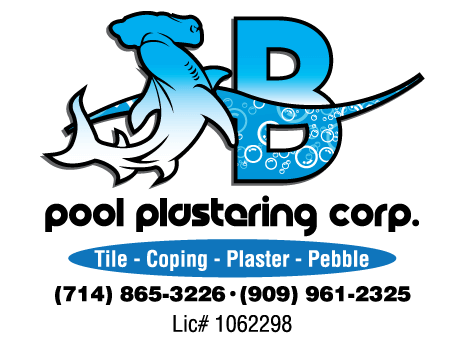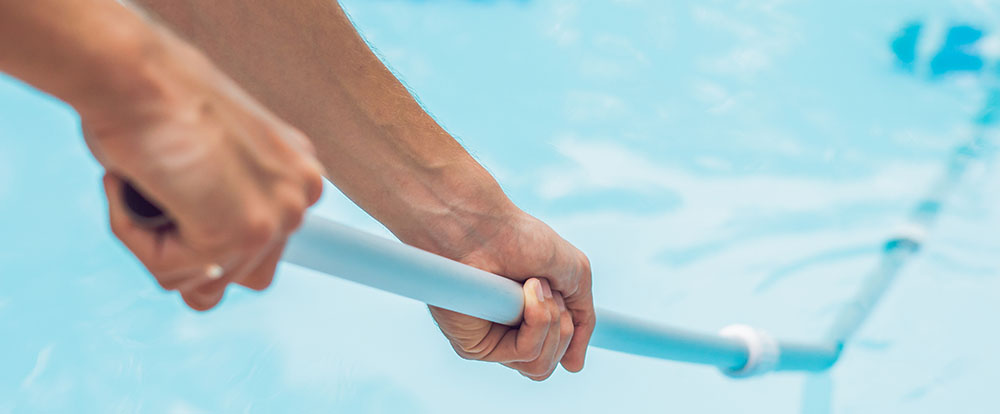
Pool Maintenance 101
Subscrite to Download Pool Maintenance 101 Guide
Fill te Form and Start Taking Care of Your Pool
If you want your pool to keep in top shape for years, then maintaining your pool is essential. With our pool maintenance 101 guide, you’ll know the basics of taking care of your pool. From pool filter systems to shock treatments, we’ll go over each of these and more!
Pool Maintenance 101: Which Are the Parts You Need to Take Care Of?
Of course, pool owners must know how a pool works. By knowing its anatomy and which parts are the ones you need to take care of, you’ll be able to make the most out of your pool. Not only will it look amazing, but you can be sure that it’ll be safe as well.
In overall, you need to keep an eye on four parts of your pool:
- Your pool’s water
- Pool filter systems
- Skimmers and returns system
- Your pool’s interior walls
Let’s go over each of these:
Your Pool’s Water
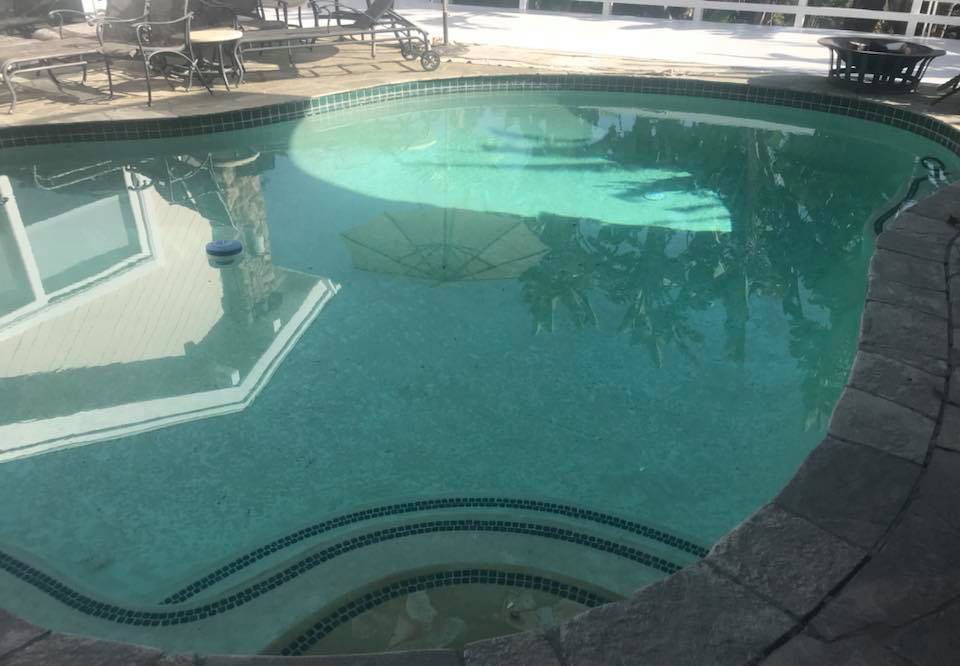
Part of our swimming pool maintenance for beginners guide, we first have the pool’s water. Needless to say, your pool’s water is what makes your pool a pool. By having the right mix of chemicals as well as the right temperature, your pool is safe to use.
Since replacing your pool’s water can be quite costly, many pool owners opt for the option of cleaning it. However, bear in mind that cleaning your pool depends on the type you have. For instance, salt water pools need a different process compared to other pools.
If you want to learn how a saltwater pool system works and the top benefits it brings, we invite you to read our article by clicking here!
Pool Maintenance Filter Systems
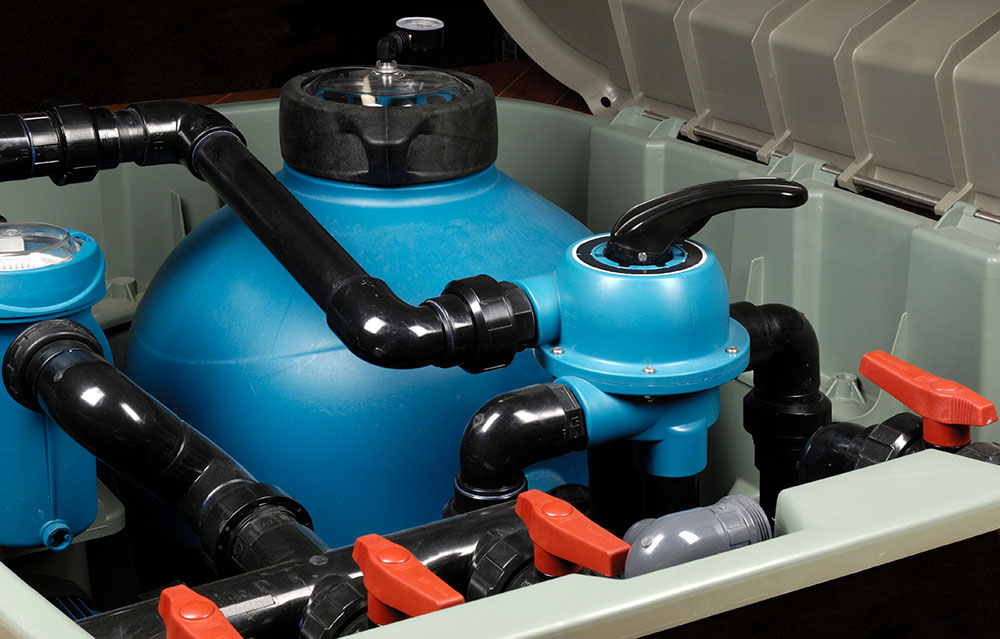
As you may already know, your pool equipment and filter systems are the ones that keep your pool safe. Their main goal is to remove any type of debris as well as to help circulate the water. With water continually flowing on your pool, filters help prevent any bacterial growth.
When counting on a faulty filter, then your pool can start becoming dirty and even murky. That’s why it’s imperative to rely on a filter that’s in excellent shape. Depending on your pool’s size and setup, you might need one or more filters.
Skimmers and Returns System
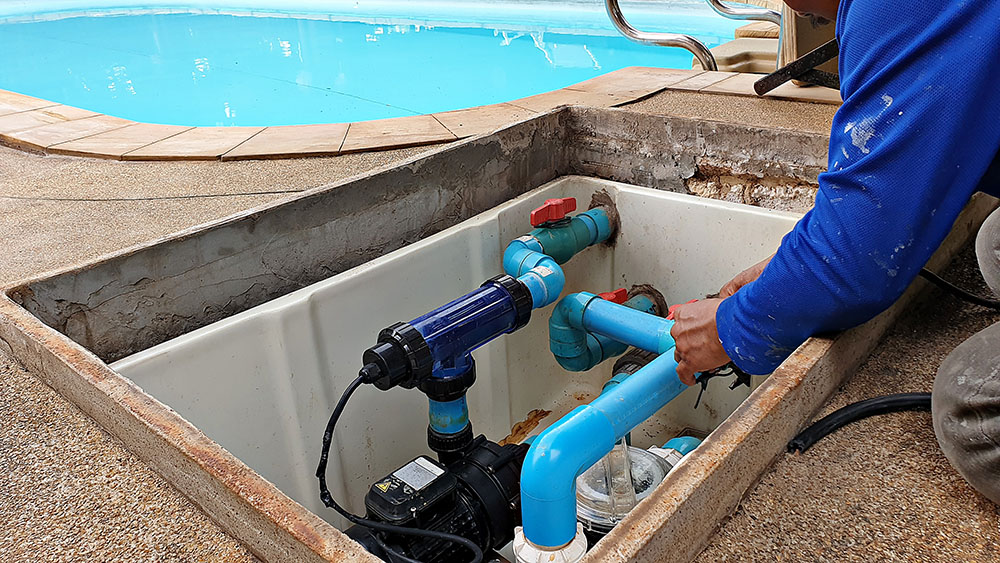
Being part of your pool’s equipment, skimmer and return systems are the ones in charge of moving the water through a series of pool pumps. By keeping the skimmers clean and clear at all times, water can circulate freely.
Your Pool’s Interior Walls
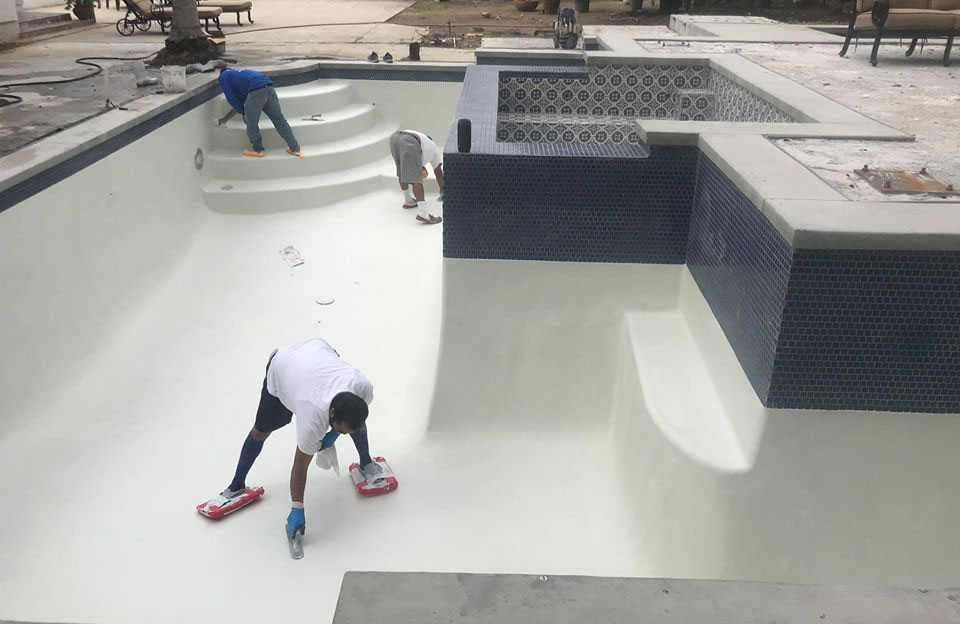
Lastly, you need to keep an eye on your pool’s interior walls. After all, your pool’s interior is what keeps the water in place. When counting on well-kept interior walls, you keep all types of mold and algae away from the water.
There are many types of pool interior walls. Among these, you have plaster, fiberglass, vinyl, and alternative finishes. Most of these interior walls usually tend to last between 10 to 20 years with proper maintenance, some even more!
Just like water, replacing pool interiors can turn out to be high-priced. For this reason, you should always keep proper maintenance by following the pool care tips we’ll share with you further on this article!
5 Pool Maintenance 101 Tips that Keep Your Pool in Top Shape
For pool maintenance 101, there are five main things all pool owners should do:
- Clean your pool regularly.
- Check your pool’s chemicals and chlorine levels.
- Keep a suitable pool circulation.
- Apply shock treatments to add chemicals.
- Create a regular maintenance schedule.
Let’s go over each of these items of our pool maintenance checklist:
Clean Your Pool Regularly
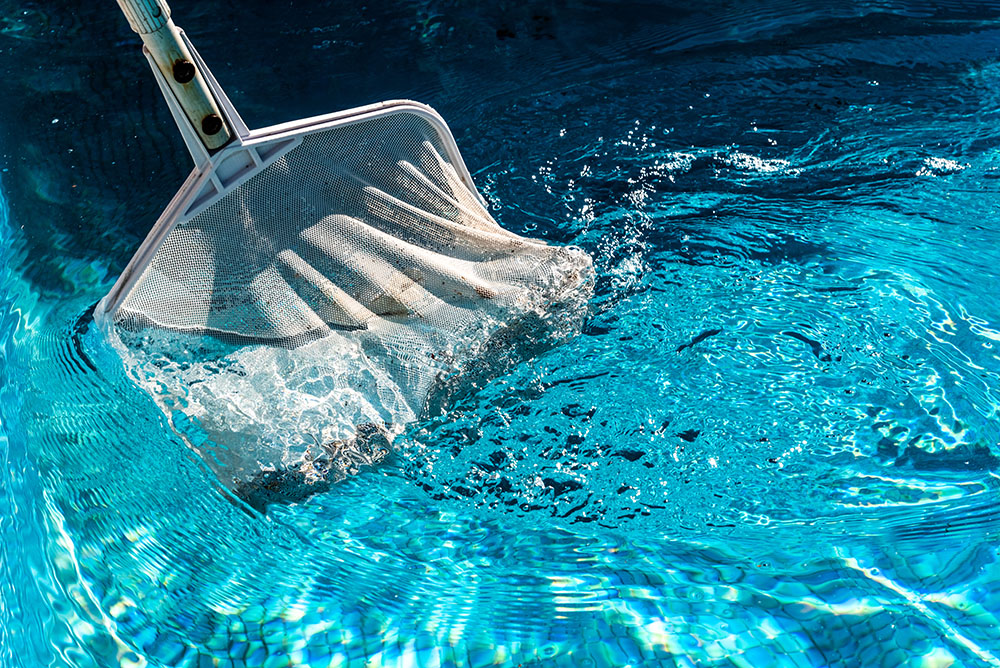
One common mistake pool owners make is that they don’t often clean their pools. One good rule of thumb is to clean your pool enough for you to use it safely every day.
Needless to say, outdoor pools tend to dirty much more often than indoor pools. That’s why you must do a series of things to ensure that it remains clean at all times. Here are 5 things in how to clean swimming pool water:
- Daily, use your pool rake to remove any debris.
- Clean your pool skimmers daily.
- Clean the filter from time-to-time.
- Daily use the pool pump.
- Brush your pool’s sides and floor at least once a week.
Additionally, remember closing your pool with a cover when not using it to prevent debris from falling inside it.
Check Your Pool’s Chemicals and Chlorine Levels
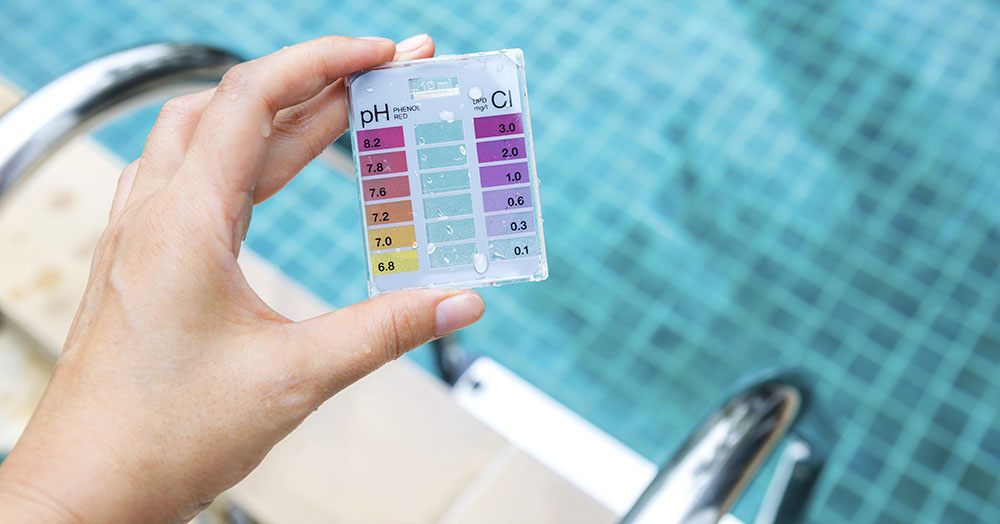
For you to safely use your pool, you need to check your pool’s water chemistry often. After all, by keeping the water balanced, you’re able to prevent any algae or bacteria growth. Not only that, but you’ll also be able to lessen any residue buildup as well.
When getting your water tested, you can use the strips that come in pool water test kits. These test strips can help you measure your pool’s pH levels, sanitizer levels, and the overall alkalinity. For instance, the ideal pH level for your pool must be around 7.5. Alkaline levels, on the other hand, must be between 100 to 150 ppm.
Lastly, keep in mind that your pool’s size affects how much chemicals you’ll need to use in your pool. You’ll want to distribute the chemicals equally and thoroughly so that your water is balanced.
Pool Maintenance Includes Proper Water Circulation
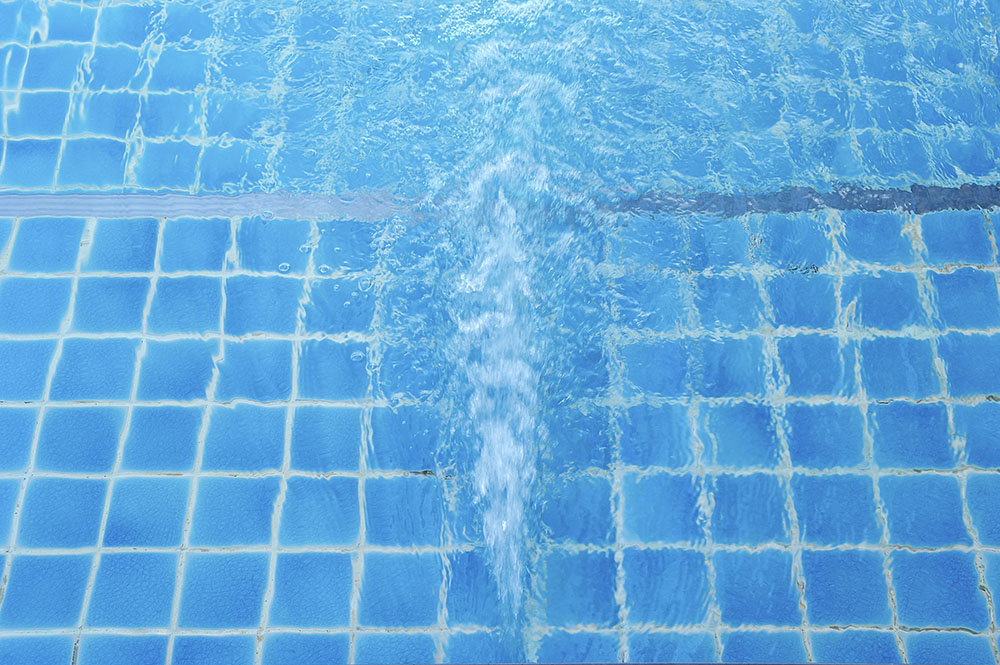
Good water circulation prevents many dreadful situations pool owners face, such as cloudy water or algae growth. By ensuring a proper water flow in your pool, you ensure that the water remains clean and clear.
The key to proper circulation is the filter’s speed. You need to make sure that it isn’t too fast since it can wear down your pool’s equipment. Also, be sure that it isn’t too slow as well since it will soil the water.
Other factors that affect your water’s flow include debris on your pool and jet spinner direction. Keep in mind that your jets need to keep your pull have a circular water motion. Also, be sure to have one pointing down.
Lastly, it’s always best to use weekly an automatic cleaner. Be mindful that, in most cases, circular pools tend to circulate compared to rectangular or any other differently shaped ones.
Apply Shock Treatments to Add Chemicals
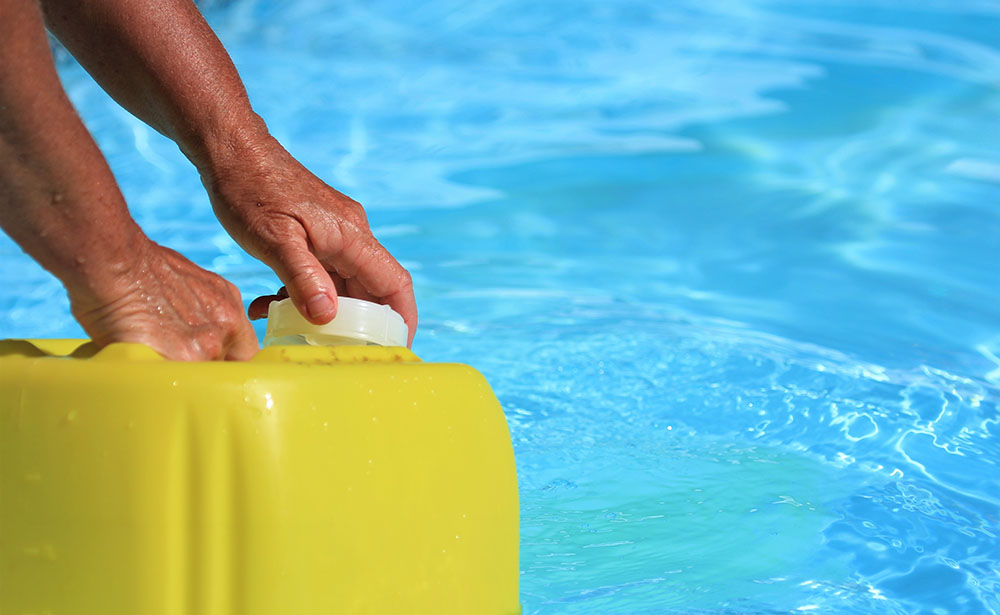
Naturally, you’ll need to provide your sanitizers a boost by shocking your pool. Applying shock treatment to your pool adds chemicals that help disintegrate chloramine.
When we use our pool, it’s very common for sweat to combine with chlorine. This combination is what we know as chloramine. Many times, sanitizers can’t handle chloramine alone. Here’s when shock treatments come in real handy. Regularly shocking your pool helps it keep at the balance it needs.
When shocking your pool, you’ll need to add three times the amount you use for your sanitizers. After applying the shock, you’ll have to run the pump and wait eight hours to recheck the water’s chemistry. Lastly, always apply your shock treatment at night.
Create a Regular Maintenance Schedule
Lastly, you’ll want to have a schedule for your pool maintenance. Although this pool maintenance 101 article has been quite extensive, most of the things we mentioned only take you a couple of minutes to do.
In fact, a schedule can help you organize all of these things in a single place! By regularly performing these tips on a weekly and daily basis, you’ll keep your pool in top shape! Not only that, but you’ll also know for sure that your pool will be safe to use at all times.
For this reason, we made a short schedule for you to use as a guide for your pool! We hope you use it to your advantage. And lastly, you can always call a professional to take care of your pool.
Subscrite to Download Pool Maintenance 101 Guide
Fill te Form and Start Taking Care of Your Pool
